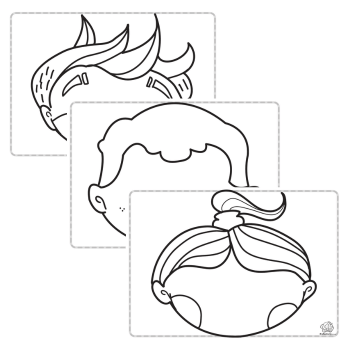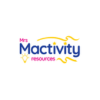These free printable templates of faces are great for encouraging young children in EYFS and KS1 to understand and talk about emotions, develop social awareness and build relationships.
By asking children to draw facial expressions onto these templates of faces, you’re not only helping them to develop their fine motor skills, but also creating an opportunity for them to discuss how different emotions look and feel.
This can be particularly beneficial for children who might struggle with recognising or interpreting emotions, such as those with a diagnosis of autism.
Ways to use these templates of faces
Ask children to create self-portraits. Giving them the chance to reflect on their own features and expressions helps build their sense of identity and confidence. It’s a simple but powerful way to get them thinking about their uniqueness and how they express their feelings.
You could also incorporate playdough into these activities. Invite children to add facial features to the blank faces templates using playdough. Shape the eyes, mouth and eyebrows to show various emotions.
This hands-on activity encourages children to think carefully about how small changes in facial features can completely alter the expression.
These types of activities not only spark creativity but also promote discussions about emotions and social cues.
They can be an excellent way to support children in developing empathy and emotional intelligence. Use these resources to create a supportive, inclusive environment where children feel safe to express themselves and learn about the emotions of others.
Mrs Mactivity is an early years and primary learning resources site, with new resources uploaded every week. Browse more resources for Autism Acceptance Week.











